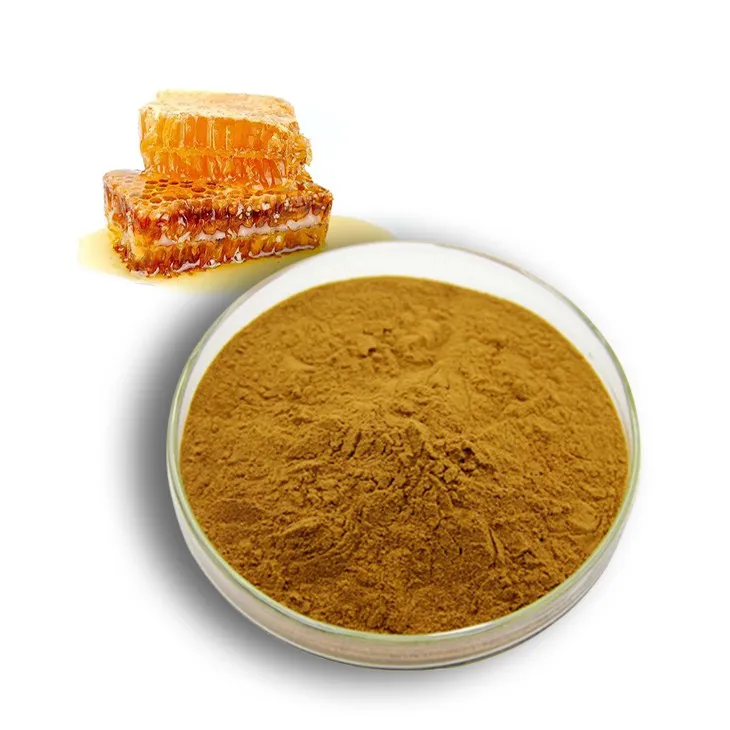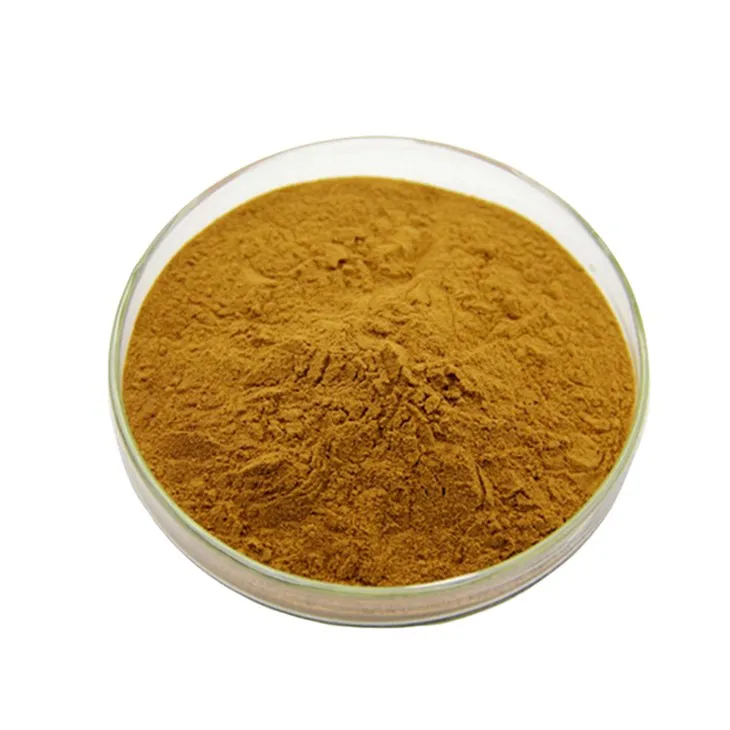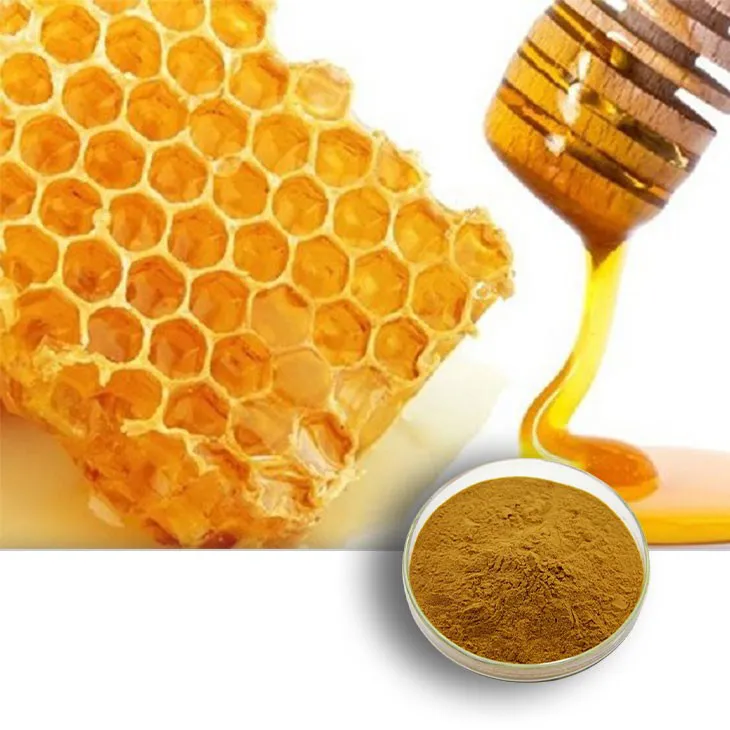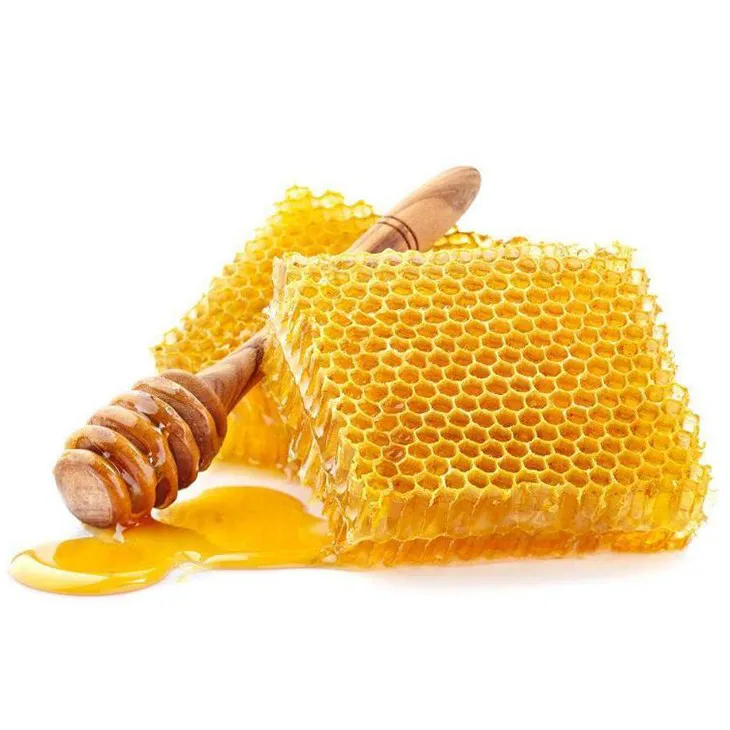- 0086-571-85302990
- sales@greenskybio.com
Chinese Propolis Extract Powder Suppliers.
2024-12-01

Introduction to Propolis and its Significance
Propolis is a remarkable resinous substance that is painstakingly collected by bees. It has long been the focus of attention in the health and wellness arena due to its multitude of health - promoting properties. Bees gather propolis from various plant sources, and in China, with its vast and diverse flora, the potential for high - quality propolis production is substantial.
Chinese propolis has unique characteristics influenced by the country's rich botanical diversity. This resin is not only used in traditional medicine in China but has also gained global recognition for its potential benefits. As a result, the role of Chinese suppliers in the international Propolis Extract Powder market is crucial and far - reaching.

Source of Propolis in China
China's geographical expanse offers a wide range of habitats for bees to forage. Diverse floral resources are available across different regions, which serve as the primary source of propolis.
Northern Regions
In the northern parts of China, there are large areas of forests and grasslands. These regions are home to a variety of trees such as poplar and birch. Bees can collect resins from these trees, which contribute to the formation of propolis. The propolis from these areas may have different chemical compositions compared to other regions, often containing specific compounds that are characteristic of the local flora.
Southern Regions
The southern regions of China are known for their lush and diverse vegetation. Tropical and subtropical plants are abundant here. Flowers such as those from citrus trees and various wildflowers are frequented by bees. The propolis sourced from the south may have a higher content of certain bioactive compounds due to the rich and unique floral sources. This diversity in the source of propolis across China allows suppliers to offer a wide range of products with potentially different health benefits.

Advanced Extraction Techniques
Chinese suppliers of Propolis Extract Powder are at the forefront of using advanced extraction techniques. These techniques are essential for converting the raw propolis into a fine powder form while preserving its beneficial properties.
Solvent Extraction
One of the commonly used methods is solvent extraction. In this process, a suitable solvent is chosen to dissolve the active components in the propolis. Ethanol is often a preferred solvent as it can effectively extract a wide range of bioactive compounds from the propolis while being relatively safe and easy to handle. The solvent - propolis mixture is then carefully processed to separate the solvent from the extracted components, leaving behind a concentrated propolis extract. This extract can then be further processed into a powder form through methods such as spray - drying or freeze - drying.
Supercritical Fluid Extraction
Another advanced technique is supercritical fluid extraction. Supercritical carbon dioxide is often used in this process. It has the advantage of being a non - toxic and environmentally friendly solvent. At supercritical conditions, carbon dioxide has unique solvating properties that can selectively extract the desired components from the propolis. This method can produce a high - quality propolis extract with a relatively pure composition. The resulting extract can be processed into powder with minimal loss of bioactive compounds.

Quality Control in Propolis Extract Powder Production
Quality control is the linchpin of the propolis extract powder production process for Chinese suppliers. It is essential to ensure that the final product meets strict international standards in multiple aspects.
Purity
Ensuring the purity of propolis extract powder is of utmost importance. Suppliers need to test for the presence of contaminants such as heavy metals, pesticides, and other impurities. Rigorous testing methods are employed to detect and eliminate any substances that could potentially harm consumers. For example, advanced spectroscopic techniques can be used to analyze the chemical composition of the powder and identify any unwanted elements. Only products that pass these strict purity tests are allowed to enter the market.
Potency
The potency of the propolis extract powder is another critical factor. This refers to the concentration and activity of the bioactive compounds present in the powder. Suppliers use various analytical methods to measure the potency, such as high - performance liquid chromatography (HPLC). HPLC can accurately determine the levels of key compounds like flavonoids and phenolic acids in the propolis extract powder. Maintaining a consistent potency is necessary to ensure the product's effectiveness in delivering the expected health benefits.
Safety
Safety is a non - negotiable aspect of propolis extract powder production. In addition to testing for contaminants, suppliers also conduct safety evaluations on the final product. This includes toxicity studies and allergenicity tests. Since propolis may cause allergic reactions in some individuals, it is essential to identify and label any potential allergens. By ensuring the safety of their products, Chinese suppliers can build trust with international customers and gain a competitive edge in the global market.

Research and Development Efforts
Many Chinese suppliers are actively involved in research and development (R & D) initiatives related to propolis extract powder. These efforts are not only beneficial for the suppliers themselves but also contribute to the overall growth of the propolis industry on a global scale.
Medical Applications
Research is being conducted to explore the potential of propolis extract powder in medicine. Studies have shown that propolis has antibacterial, antiviral, and anti - inflammatory properties. Chinese R & D teams are investigating how these properties can be harnessed to develop new drugs or therapeutic agents. For example, propolis extract powder may be used in the treatment of oral infections due to its antibacterial activity. Additionally, its anti - inflammatory properties could potentially be useful in treating certain chronic inflammatory diseases.
Cosmetic Applications
In the field of cosmetics, propolis extract powder is gaining popularity. It is rich in antioxidants, which can help protect the skin from damage caused by free radicals. Chinese suppliers are collaborating with cosmetic companies to develop new skincare products containing propolis extract powder. These products may include creams, lotions, and serums. The anti - aging and skin - rejuvenating properties of propolis are being explored further, with the aim of creating high - quality cosmetic products that can compete in the international market.
Food Supplement Applications
Propolis extract powder also has great potential as a food supplement. It can be added to various food products such as honey, yogurts, and health bars. Chinese suppliers are researching ways to optimize the addition of propolis extract powder to food products without affecting their taste and texture. Moreover, studies are being carried out to determine the appropriate dosage levels for different health benefits. For example, propolis extract powder may be beneficial for boosting the immune system, and R & D efforts are focused on finding the optimal dosage for this purpose.
Market Position and Future Prospects
Chinese propolis extract powder suppliers have carved out a significant position in the global market. Their ability to source high - quality propolis, utilize advanced extraction techniques, and maintain strict quality control has made their products highly sought - after.
Current Market Share
Currently, Chinese suppliers account for a substantial portion of the global propolis extract powder market. Their products are exported to numerous countries around the world, including the United States, Europe, and Asia - Pacific regions. The competitive pricing of Chinese - produced propolis extract powder, combined with its good quality, has made it an attractive option for international buyers.
Future Growth Opportunities
The future looks promising for Chinese propolis extract powder suppliers. With the increasing global awareness of natural health products, the demand for propolis extract powder is expected to grow. Chinese suppliers can further expand their market share by continuing to invest in R & D, improving production efficiency, and strengthening their marketing strategies. Additionally, exploring new markets in emerging economies can open up new avenues for growth. For example, in countries with a growing middle class and an increasing interest in natural remedies, there is a great potential for promoting propolis extract powder products.
Challenges Faced by Chinese Suppliers
Despite their success, Chinese propolis extract powder suppliers also face certain challenges in the international market.
Competition
The global propolis market is highly competitive. Suppliers from other countries, such as Brazil and Australia, also produce high - quality propolis extract powder. Chinese suppliers need to continuously innovate and improve their products to stay competitive. This includes not only enhancing the quality of the extract powder but also developing unique product features or formulations.
Regulatory Requirements
Different countries have different regulatory requirements for propolis extract powder. Meeting these diverse requirements can be a complex and time - consuming task. Chinese suppliers need to stay updated on the regulatory changes in various markets and ensure that their products comply with all relevant regulations. For example, some countries may have specific labeling requirements or restrictions on certain ingredients in propolis extract powder.
Raw Material Supply
Although China has rich floral resources, factors such as environmental changes and bee colony health can affect the supply of propolis. Climate change may alter the distribution and availability of floral sources for bees, potentially reducing the quantity and quality of propolis collected. Additionally, diseases and pests that affect bee colonies can also impact propolis production. Chinese suppliers need to address these issues to ensure a stable supply of high - quality propolis.
Conclusion
Chinese propolis extract powder suppliers play a vital role in the global market. Their access to diverse sources of propolis, use of advanced extraction techniques, strict quality control, and active R & D efforts are key factors in their success. However, they also face challenges such as competition, regulatory requirements, and raw material supply issues. By addressing these challenges and continuing to capitalize on their strengths, Chinese suppliers can look forward to a prosperous future in the global propolis extract powder market.
FAQ:
What are the main regions in China where propolis is sourced?
There are several regions in China that are known for rich floral resources and thus are important sources of propolis. For example, some areas with abundant wildflowers and diverse plant species in the northeast, southwest, and some mountainous regions are likely sources. However, specific regions can vary depending on the types of bees and the availability of different plants that bees use to collect resin for propolis.
What advanced extraction techniques do Chinese suppliers use?
Some common advanced extraction techniques include supercritical fluid extraction. This method uses supercritical fluids, often carbon dioxide, which has properties between a gas and a liquid at specific conditions. It can effectively extract the active components from propolis with high purity. Another technique could be solvent - based extraction, where appropriate solvents are used to dissolve the useful components from propolis, followed by purification steps to obtain the extract powder.
How do Chinese suppliers ensure the purity of propolis extract powder?
They start with strict sourcing of raw propolis from reliable areas. During the extraction process, they use high - quality equipment and precise control of parameters. After extraction, multiple purification steps are often involved, such as filtration and chromatography techniques. Quality testing is also carried out at various stages. This includes tests for contaminants like heavy metals, pesticides, and microbial content to ensure that the final propolis extract powder has high purity.
What new applications in the field of medicine are Chinese suppliers exploring?
Chinese suppliers are exploring its potential in areas such as anti - inflammatory drugs. Propolis has shown certain anti - inflammatory properties, and research is being done to develop new medications or complementary therapies. It may also be investigated for its role in wound healing, as it has antibacterial and tissue - regenerating potential. Additionally, its potential in treating certain chronic diseases like diabetes or cardiovascular diseases through modulation of the body's physiological functions is also being explored.
How does Chinese propolis extract powder contribute to the global cosmetics industry?
Propolis extract powder can be used in cosmetics due to its antioxidant, antibacterial, and skin - nourishing properties. In skincare products, it can help protect the skin from environmental damage, reduce inflammation, and improve skin texture. It is often added to creams, lotions, and serums. In haircare products, it may contribute to healthy hair by nourishing the scalp and strengthening the hair shaft. Chinese - supplied propolis extract powder, with its quality and diverse applications, enriches the global cosmetics industry by providing an effective and natural ingredient option.
Related literature
- Propolis: Chemical Composition, Biological Properties and Therapeutic Activity"
- "The Role of Propolis in Cosmetics: A Review"
- "Propolis Extracts in Food Supplements: Quality and Efficacy"
- ▶ Hesperidin
- ▶ Citrus Bioflavonoids
- ▶ Plant Extract
- ▶ lycopene
- ▶ Diosmin
- ▶ Grape seed extract
- ▶ Sea buckthorn Juice Powder
- ▶ Fruit Juice Powder
- ▶ Hops Extract
- ▶ Artichoke Extract
- ▶ Mushroom extract
- ▶ Astaxanthin
- ▶ Green Tea Extract
- ▶ Curcumin
- ▶ Horse Chestnut Extract
- ▶ Other Product
- ▶ Boswellia Serrata Extract
- ▶ Resveratrol
- ▶ Marigold Extract
- ▶ Grape Leaf Extract
- ▶ New Product
- ▶ Aminolevulinic acid
- ▶ Cranberry Extract
- ▶ Red Yeast Rice
- ▶ Red Wine Extract
-
Calendula Extract
2024-12-01
-
Clove Powder
2024-12-01
-
Carrageenan Extract Powder
2024-12-01
-
Astaxanthin
2024-12-01
-
Mulberry leaf Extract
2024-12-01
-
Honeysuckle Pollen
2024-12-01
-
Cassia Seed Extract
2024-12-01
-
Kupilu Extract
2024-12-01
-
Red Vine Extract
2024-12-01
-
Shikonin
2024-12-01





















